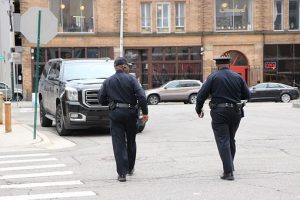New Jersey Employment Law Decision by State Supreme Court Examines Employer’s Duty to Reasonably Accommodate Employee With Disability Under New Jersey Law Against Discrimination
Background: Disability Discrimination and the Requirement of Reasonable Accommodation
New Jersey’s Law Against Discrimination bars employers from discriminating against employee’s because of a disability, provided they can perform the job with “reasonable accommodation.” Because no two employees or workplaces are the same, no accommodations will be the same for two employees, or reasonable for different employers. Thus, the regulations interpreting this requirement in the Law Against Discrimination require that employers must engage in an “interactive process” with a disabled employee to explore whether there are accommodations which the employer could implement to assist her in performing her duties without imposing an undue hardship on the employer.
Discrimination require that employers must engage in an “interactive process” with a disabled employee to explore whether there are accommodations which the employer could implement to assist her in performing her duties without imposing an undue hardship on the employer.
The New Jersey Supreme Court recently explored these issues in the case of Richter vs. Oakland Board of Education.
 New Jersey Lawyers Blog
New Jersey Lawyers Blog



 And while
And while 
 and ethnicity in violation of New Jersey’s
and ethnicity in violation of New Jersey’s  the Third Circuit hears federal appeals from the Federal District Courts in New Jersey, Pennsylvania, Delaware and the United States Virgin Islands, the case,
the Third Circuit hears federal appeals from the Federal District Courts in New Jersey, Pennsylvania, Delaware and the United States Virgin Islands, the case,  Jersey civil service law enforcement officer.
Jersey civil service law enforcement officer. protections are extremely valuable.
protections are extremely valuable. Appellate Division of the New Jersey Superior Court recently examined some of these ramifications in its opinion in the case of
Appellate Division of the New Jersey Superior Court recently examined some of these ramifications in its opinion in the case of